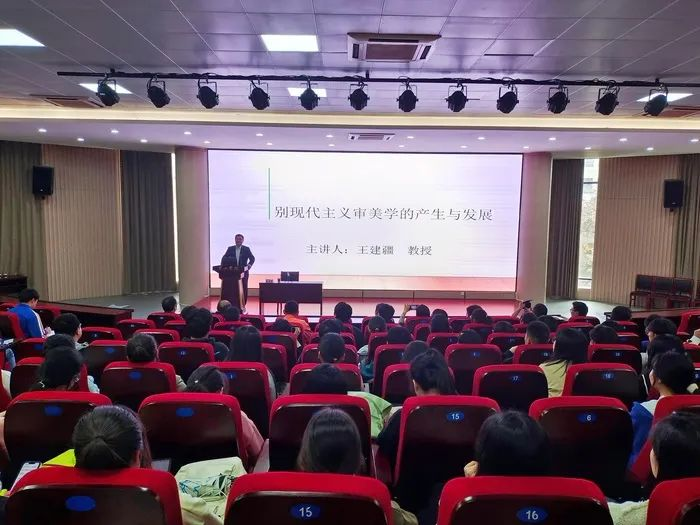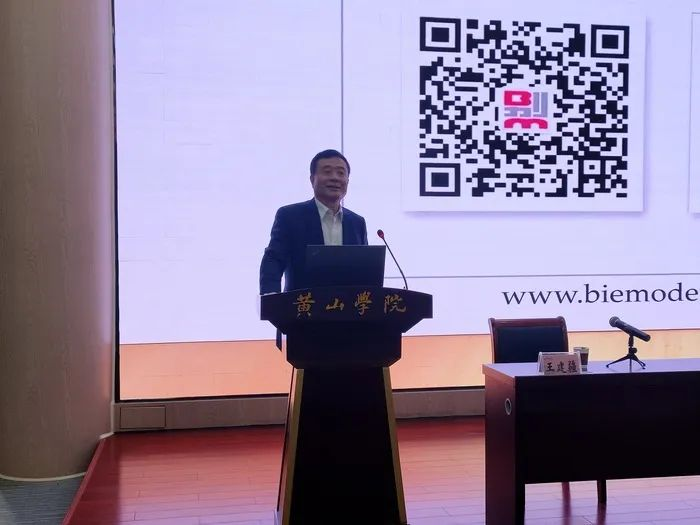Professor Wang Jianjiang from Shanghai Normal University visited Huangshan University to give a lecture.
Profile:
On the afternoon of April 14th, Wang Jianjiang, the founder of Bie-modern theory, a second-level professor at Shanghai Normal University and a doctoral supervisor at the School of Humanities, was invited to Huangshan University to give an academic lecture titled “The Genesis and Development of Bie-modernism Aesthetics”. More than 200 faculty members and students from the School of Literature attended the lecture. The report was chaired by Zhu Hongsheng, the Vice Dean of the School of Literature.
Detail:
The report was divided into four parts: “The International ‘Journey’ of Bie-modernism” “What is Bie-modernism Aesthetics” “Categories of Bie-modernism Aesthetics” and “Bie-modernism Life Equity Aesthetics”. Wang Jianjiang began by introducing the character “别” (bie) in oracle bone script, examining its seven original meanings and extended meanings. He also combined numerous examples from classical Chinese philosophy, aesthetics, and literary theory to illustrate the existence of “Bie” thinking and “Bie” cultural phenomena in classical Chinese culture.

Next, he discussed the origins of the Bie-modern theory and its communication and dissemination in Western academic and artistic circles. Drawing on a wide range of literary, artistic, and everyday phenomena from ancient times to the present, he provided an accessible and engaging interpretation of key aesthetic categories in Bie-modern aesthetics, such as “Self-regulating Aesthetics” “Inner Aesthetics” and “Life Equity Aesthetics”. The lecture was accompanied by vivid illustrations and delivered in a lively and humorous manner. In particular, when discussing the concept of life equity aesthetics, he used the Easterlin Paradox to critically analyze the relationship between aesthetic experience and happiness, which generated a strong response and resonated with the audience, highlighting its relevance to real-life experiences.

During the interactive session, Professor Wang Jianjiang engaged in lively exchanges and discussions with the attending students on various related topics, such as the differences between Bie-modernism and Western modernism and postmodernism, inner aesthetics versus sensory-oriented aesthetics, and the pursuit of authenticity in Bie-modernism in contrast to the development of deepfake AI technology. (Reprinted from Huangshan University official website)